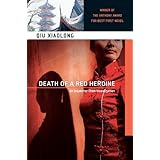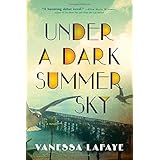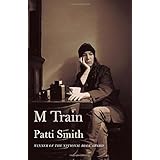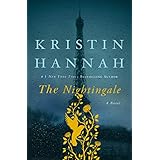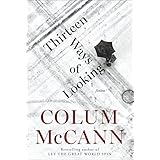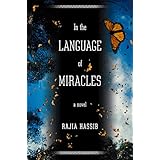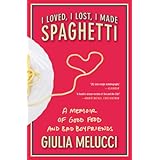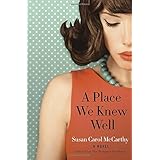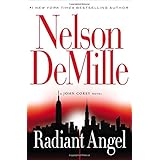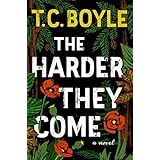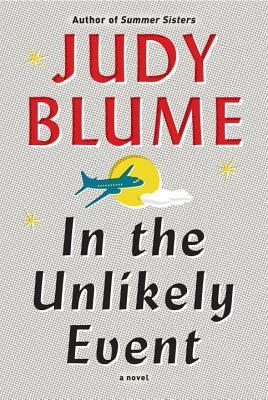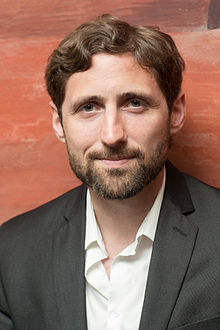1. Elena Ferrante's Neapolitan Trilogy. I cheated on this one since I felt that the three books are truly one long novel divided up by publisher, Europa Editions, simply for ease of reading. These novels about the strange, symbiotic relationship between two school girls, Elena and Lila, spans decades using the political and cultural evolution of Italy, from Naples to Milan, for a backdrop.
http://bit.ly/1PEbK6R, http://bit.ly/1OyWWXP
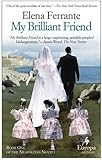
2. "Being Mortal," by Atul Gawande. This book came to me last January when my brother was facing his final days of life. Death and dying with dignity has long been an obsession of mine back to the days when my buddy Andrea Carter and I brought a six week discussion series (not very well attended, I might add) to our library. I'm still amazed at how few of us are able to speak honestly about the one thing we all share as humans - the end of life. This book should be required reading. http://bit.ly/1R18q74

3. "Redeployment," by Phil Klay. This powerful series of short stories brings the chaos of the war in Afghanistan into our minds and hearts. "When will we ever learn.....when will we ever learn." http://bit.ly/1L1Vl9o

4. "Our Souls at Night" by Kent Haruf. Small but mighty, this is a gorgeous novel about two lonely souls having the courage to make a connection, flaunting small town small-mindedness, rising above salaciousness. The joy of the physical is not bound by age. http://bit.ly/1OurJhW

5. "Florence Gordon," by Brian Morton. An opinionated woman who refuses to age gracefully, beautifully rendered by a male author, Florence is this year's Olive Kitteridge in all her curmudgeonly glory. I hope to be her when I grow up.
http://bit.ly/1mrIcgr

6. "Between the World and Me," by Ta-Nehisi Coates. Reading this book, a letter to his fifteen-year-old son, will be the closest you'll ever come to knowing what it is like to walk in another man's skin. If you want to understand the power of the #blacklivesmatter movement, if you hope to even remotely fathom what it's like to be a black man in America today, look no further.
http://bit.ly/1JLnMVb

7. "My Song," by Harry Belafonte. This memoir is the perfect juxtaposition of Mr. Coates' cri de Coeur from a new generation. I knew that Belafonte was a force to be reckoned with in the black movement of the '60's but I had no idea what a powerful role he played and continues to play, always following his own conscience, his own song. This memoir reads like a history of the civil right movement in the twentieth century.

8. "Small Mercies," by Eddie Joyce is an incredible debut novel, one of my must reads of 2015. Set in Staten Island, New York, in a middle-class Irish-Italian neighborhood, Joyce captures to perfection the means in which small-town Americans rally around their own during times of extreme trouble, in this case the death of a local fireman at ground zero. http://bit.ly/1RT1zMA

9. "The Tsar of Love and Techno," by Anthony Marra. Here's a portion of what I had to say in this starred review for "Library Journal." Love and war, loyalty and betrayal, are themes inextricably joined in the literary imagination. Marra, who dazzled readers and critics with his debut novel, "A Constellation of Vital Phenomena," once again captivates with this collection of stories spanning 75 years. Linked by generations of political rebels, artists, soldiers, and criminals, these tales pay homage to the victims of the dissolution of the Soviet Union and the resulting wars in Chechnya.

10. "City on Fire," by Garth Risk Hallberg. This ferociously ambitious first novel apparently didn't live up to the hype. Readers today just aren't prepared to tackle these wonderful 800-plus page behemoths. But oh, what they're missing. Difficult to describe, this is a Dickensian romp through 1970's New York city, long before Mayor Bloomberg came along to clean things up. It's a mash-up of sex, drugs, rock and roll, the art scene, AIDS, nihilist philosophers in cahoots with businessmen of dubious wealth. It's "The Bonfire of the Vanities," on steroids.

Now I'd like to hear from you. I have a give-a-way, a much anticipated novel by Charles Bock. It's called "Alice and Oliver," and I've just sent my review in to "Library Journal," so I'm free to mail this out to the first person who comments on this list or is willing to share their own favorites of 2015. There's so much I haven't read. Tell me what I need to put on my list for the new year. Thanks so much for reading!

